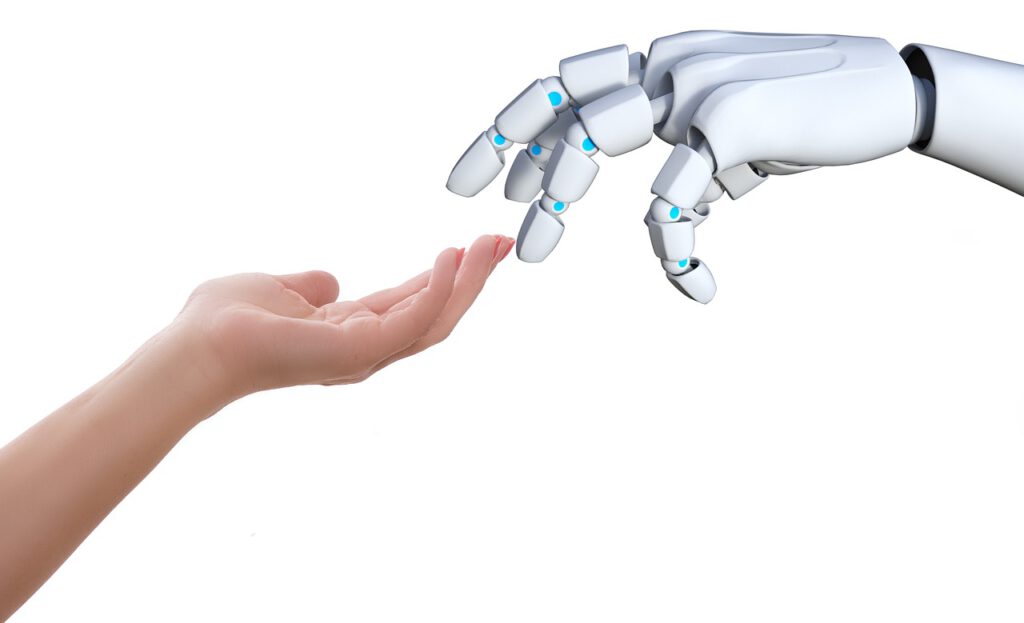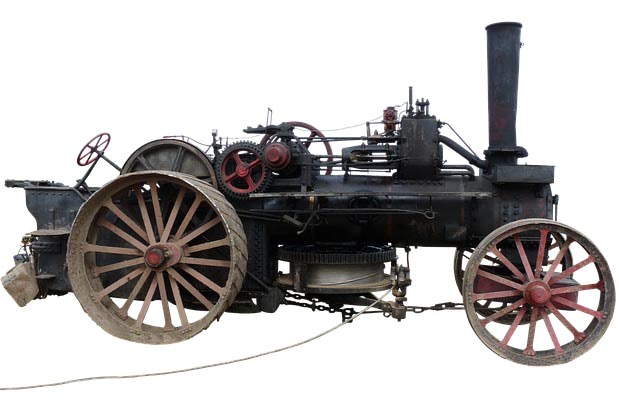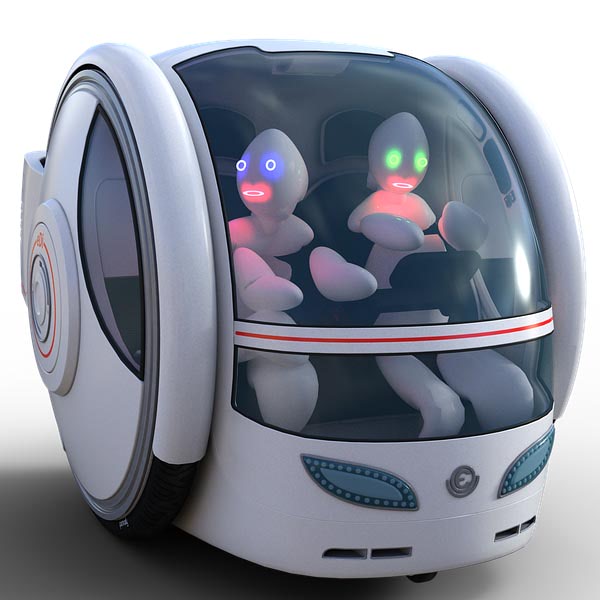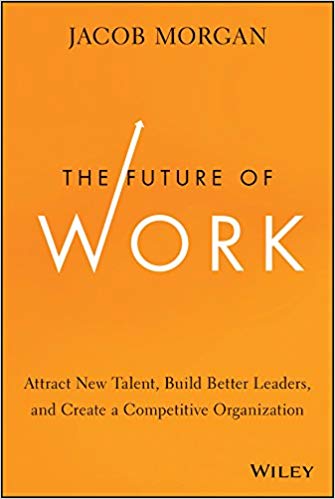#FutureofWork Is Something You Need To Think About?

The world of work is changing; we are in the midst of a revolution fuelled by technological advancement, the change in the labour market and the demand for new skills, flexibility and resilience.
We are on the brink of a technological revolution that will change the way we work, live and think!
This is the 4th time that humans have developed technology to solve problems and improve life.
 |
The 1st Industrial Revolution in the 18th Century consisted of inventions such as steam power that meant that rural societies became industrial and urban. |
 |
The 2nd Industrial Revolution in the19th Century, saw major technological advances during this period such as the telephone, light bulb and electricity. |
 |
The 3rd Industrial Revolution saw the development of the digital age, simple word processors and calculators. |
 |
The 4th Industrial Revolution, today we are experiencing emerging technological breakthroughs in a number of fields; including:
|
Technologies such as these are changing the way we work and live, they are therefore likely to have the greatest impact on all aspects of our lives.
 |
“If you don’t think about the Future of Work, then your organisation has no future”, Jacob Morgan – The Future of Work: Attract New Talent, Build Better Leaders, and Create a Better Organization (2014) |
Jacob Morgan in his book ‘The Future of Work 2014’, Identifies key trends that are driving this new revolution. These are:
- New behaviours
- Technologies
- Millennials in the workplace
- Mobility, and
- Globalization.
It is a clear combination of these trends that are forcing companies to revaluate the way they do business.
Furthermore, an aging population, the need to create new inventions and discover scientific breakthroughs to help improve the lives of people and global competition for new technology will open up the job market.
The last fifteen to twenty years has seen amazing changes in the way that we consume information, the change in shopping habits as well as the way that we access entertainment.
The need for instant access is taken for granted. The connectivity of the internet combined with our fast-paced life-styles has fuelled these changes in behaviour.
New jobs such as cyber security analyst, social media manager and hydroponic farmer did not exist fifteen years ago. The labour market is responsive to the changes that are taking place.
We are likely to see new jobs emerge in light of artificial intelligence and the changes that are taking place at the moment.
Global competition, growing economies and the changes in logistics and transport have made the world a smaller place. We are all connected through the internet and can work remotely and communicate with ease across the globe.
We are competing on a worldwide scale that crosses nations and boundaries of race, culture and religion. Companies can now select candidates based on talent with a view to train later.
What challenges do we face?
Challenges that we face currently include the need to up skill our current generation of young people to meet these demands.
New competencies and skills such as Science, Technology, Engineering and Maths (STEM) including the technological knowhow to understand the fast-paced changes that are taking place.
This includes the introduction of artificial intelligence into the labour market. We can see this already in areas such as the military, medical research, sport, manufacture and space exploration.
More than ever young people need to know what employers are looking for. Whilst qualifications are important, it is not the only important factor that can influence an employer to select a candidate.
Skills and qualities such as effective communication, flexibility, creativity, ability to problem-solve, leadership, team work, and a positive mind-set and resilience are all things that employers want from successful candidates.
So where are all jobs likely to be?
Research has shown that 35% of jobs in the UK are at high risk of computation in the next 20 years, particularly in areas such as retail, storage and transport sectors (2014 joint study between Oxford University and Deloitte).
Traditional areas and low-skilled jobs are likely to decline such as the role of an office worker, production line worker, retail worker and the travel operator. This is due to change in behaviours fuelled by technology; the need for high production and low costs.
Indeed the way we work and the length of time we spend at work is changing. Gone are the days where you would you have a job for life, and even if you were to stay with the same company you are more likely to have to adapt to the needs of the business. Up skilling is crucial if the workforce are to survive and compete successfully in the fast paced world.
The increase in ‘side hustling’ employment undertaken in addition to one’s full-time job.is becoming ever popular. A side hustle can also provide a supplemental income. By pursuing a hobby or an interest, it allows the side hustler to develop an initial idea into a business venture, without losing essential income from more permanent work. An increase in part-time work, more than one job, temporary hours and zero hour contracts are becoming ever more common in the current labour market.
Career-jumping and diversifying throughout the working life will be common place. The place of work is no longer 9-5 set hours, it is flexible, adaptable yet it can have a huge impact on work-life balance. The need to respond and meet set targets and deadlines, to perform constantly to a high standard will be necessary if the employee is to stand a chance of progression and to sustain employment.
Are we ready?
Today we are living a more open life where our lifestyles are increasingly open to scrutiny. We share our posts on social media, we upload information and our digital footprint provides a brand that prospective employers can judge us with.
Millennials however need to be ready for these changes as do educationalists and those that provide advice to help effectively manage the ever-changing demands of the labour market.
Employers and young people need to adjust to changes that are forecast to take place. Advances in technology notably the use of smart phones, driverless cars and wearable devices will undoubtedly change the way that we live and work.
Furthermore recent scientific breakthroughs such as the use of engineering with medicine to enable the use of artificial organs to improve and prolong life. All these changes along with others will ultimately have an impact.
Final Thoughts
It was Stephen Hawking’s in 2007 that said ‘Intelligence is the ability to adapt to change’ and this quote has never been more relevant than in todays society.
Robots and software are forcing us to rethink the jobs that humans can and should do, big data gives us insight into how we work. Collaboration platforms give us the ability to connect people and information together anywhere, anytime and on any device.
Early indications show that robots won’t replace us, they can be used in a variety of ways, technology is changing the way we work, it can make life better for us, but we need to adapt to the future world of work.
Robots will work with us, side by side and take on tasks that they excel in. Such as working in hospitals to monitor patients more effectively, freeing up medical professionals to spend more time with patients to assess their individual needs. Social and cognitive skills will be required to make key judgements and decisions.
As the world is on the cusp of AI, will this open up new opportunities in leisure? Leaving humans free to use their leisure time as they wish to do so.
Large quantities of importation and pattern recognition are all ways in which robotic systems and software can be used to assist human endeavour.
“There’s going to be a huge change, comparable to the industrial revolution,” says Jerry Kaplan, a Silicon Valley entrepreneur who teaches a class in artificial intelligence at Stanford University. Robots and intelligent computer systems, he says, “are going to have a far more dramatic impact on the workplace than the internet has”.
“The revolution is coming, but it will not happen overnight. Deloitte’s research shows advances will naturally gravitate towards relevant sectors, starting with the more predictable and repetitive tasks and allowing room for society to adapt.
“The amount of social and political change will depend on whether governments are forced to pay us a basic income to do nothing this depends precisely on the speed of that introduction, and just how much humankind is prepared to let robots do the work.” (Doug Gray Robot revolution: AI and the future of work, economist.com)
This raises many questions for the future of work such as:
- Will there be a job for us in the future?
- Will robots take over and humans become redundant?
- Will we have the capacity to up skill ourselves and be in a position that we can compete successfully for jobs?
- What will the typical working week look like for us?
- Will we be ready?
However the questions will not be answered overnight, as it may take decades to see the impact of the 4th Industrial Revolution.
But one thing is for certain that we will need to be flexible, resilient and open to new ways of working and learning if we are to thrive.
Sarfraz Ahmed and Lisa Wilford – Careers Advisors, Leicester College
Credits:
- Jacob Morgan, The Future of Work: Attract New Talent, Build Better Leaders, and Create a Better Organization” (2014)
- Dan Pink, A Whole New Mind: Why Right-Brainers Will Rule the Future (2008)
- The Rise of the Robots by Martin Ford / Humans Need Not Apply by Jerry Kaplan – review
- Doug Gray, Robot revolution












Responses